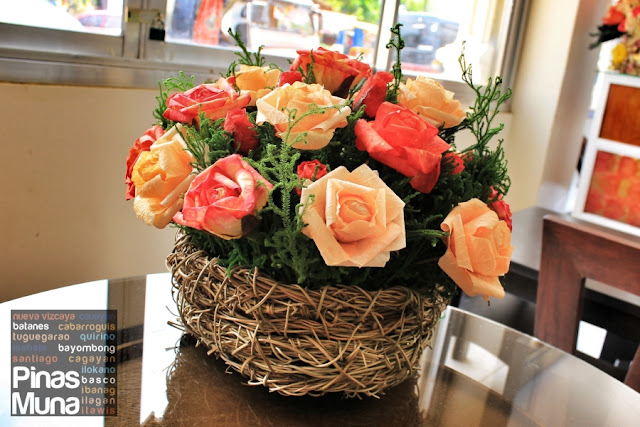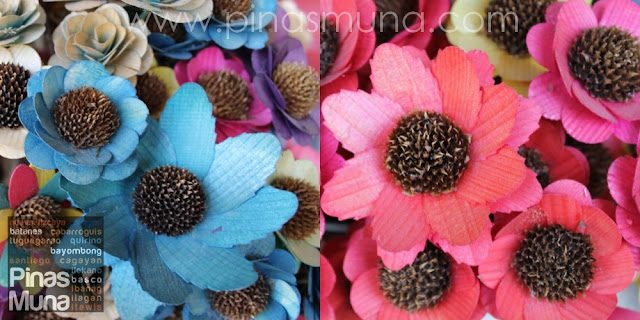At first look, fossilized flowers look like dried flowers, but they are in fact not made of flowers but of alibangbang leaves that have been dried, bleached and dyed. The fossilized flower making industry in Quirino Province was a product of the initiative of the provincial government to create livelihood for its citizens and to create a product that would represent the province. Today, the industry is one of the biggest source of livelihood in Quirino, particularly in the town of Cabarroguis where fossilized flowers have been identified as its One Town One Product (OTOP).
 |
| Alibangbang Leaves |
Many housewives in the province depend on the fossilized flower making industry as a source of additional income to support their domestic finances. According to Mrs. Ignacio, a resident of Barangay Gamis, in the town of Saguday, she has been making fossilized flowers since 1999 and the income she generated helped to finance the education of her children. During weekends and school breaks, her children also help out in making fossilized flowers.
 |
| Fossilized Flower Production |
Mrs. Joyce Soriano, owner of Craft by Joyce, a commercial manufacturer of fossilized flowers in the town of Cabarroguis, receives regular orders from home decor stores and boutiques in Metro Manila and nearby provinces. She has around ten full time employees engaged in the production while a number of housewives also supplies her with raw materials. According to the Provincial Tourism Office, fossilized flowers are also being exported to countries like the United States and Japan.
Fossilized Flowers are a concrete testament to Filipino creativity to transform everyday materials into crafts and works of art. Through this industry, Filipinos manifest their unity and the uniquely Filipino trait of damayan. By empowering the people with skills, the province was able to develop a thriving business that fuels economic growth in its barrios and towns.
 |
| Craft by Joyce | Cabarroguis, Quirino Province |
For bigger volumes, you can contact Mrs. Joyce Soriano of Craft by Joyce at 0916-3401111 or 0905-4914888. You can also send her an e-mail at craftbyjoyce@yahoo.com.
One Town, One Product (OTOP) is a program of the Philippine Government through the Department of Trade and Industry (DTI) to encourage entrepreneurship aimed at providing livelihood and employment to Filipinos. It showcases products made of indigenous raw materials crafted by local workers, craftsmen and artists. The OTOP is also a key instrument in promoting tourism in the country. We at Pinas Muna advocate the OTOP program and through our blog, we aim to introduce you to the many Filipino-made products and urge you to support Filipino businesses.







No comments:
Post a Comment